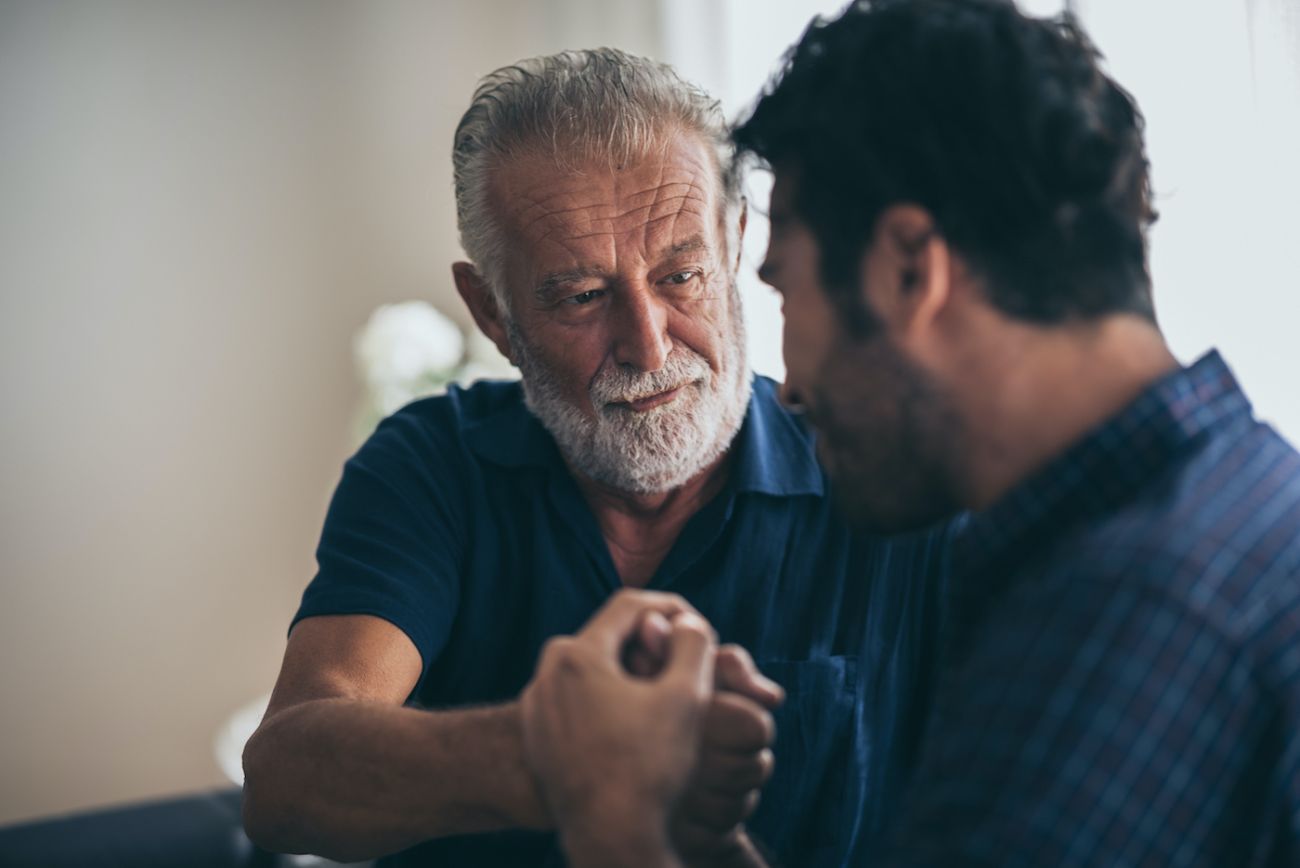The initial shock of receiving a cancer diagnosis can send you down a path of countless questions, each one more impossible to answer than the last. On top of all these questions, anxieties and readjustments for the journey ahead of you, you’re also faced with the task of letting those in your life know your diagnosis.
This is very personal information to share – you may feel sadness, embarrassment, or too overwhelmed to begin letting others in. “Some people find that they want to tell loved ones right away, and others want to take a bit of time to understand their own feelings,” says Kathleen Shanahan, PhD, MA, a medical psychologist previously in the Department of Psychology at Roswell Park Comprehensive Cancer Center. “The important thing is that this is your story, to share only when and with whom you feel comfortable sharing.”
You may not feel ready to share specific details of your cancer diagnosis right away. This can depend on a number of factors: where you are in your diagnosis, whether you’re a more private person, and even your relationship with the person you’re telling. Depending on the nature of your relationship, you may not feel compelled to share everything.
“You are the one who gets to decide how much to share based on what you think will be most helpful to you,” says Dr. Shanahan. “You should never feel obligated to say more than you feel comfortable saying.”
Conversely, you might be ready and willing to share as much information as you can with your friends and family. “Sometimes people will set up a private Facebook group or a CaringBridge page to keep people informed,” says Martha Hickey, manager of the Resource Center for Patients and Families at the Roswell Park main campus. “You may have a lot of people around you, and a lot of information to give. Setting up a page allows you to share the information you want to share with only the people you want to share with.”
That being said, once the information is out there, it may not be easy to control who finds out later on. “You may want to think ahead to have an answer prepared if someone outside of your support circle finds out and asks for details, or shares unsolicited advice,” Dr. Shanahan suggests.
Acknowledging their concern but reminding them that you have a strong support system and a confident care team can be a good place to start.
Prioritize your own emotions
Coming to terms with your diagnosis and understanding your treatment plan might be overwhelming – if you decide to relay this information to the rest of your family and friends, you may subject yourself to emotions beyond your own. You can feel optimistic about your treatment plan moving forward, while a family member is unable to hide their distress and emotions. This may lead to confusion understanding your own emotions and has potential to create a strain on that relationship.
“It can be very hard not to take on the emotional weight of loved ones’ responses to your cancer journey,” Dr. Shanahan says. “If you find that someone you love is having a difficult time managing their distress, you can encourage them to identify people they can turn to for support; whether friends, other family members or professional resources.” Protecting your own emotional wellbeing comes first.
Reach out for help
If you are struggling with how to tell your family, or your family is struggling with this news, the Resource Center at Roswell Park — located in the cafeteria on the first floor of the main hospital — offers dozens of pamphlets, books and print outs to help navigate the conversation, and a group of compassionate people ready to help. “We call ourselves ‘the soft place to land’ after a diagnosis,” says Hickey. “We have solid, trusted information to help guide you through your cancer journey. We’re happy to help you through this; that’s what the Resource Center does.”
There’s no “one size fits all” approach, and you can decide to share more or less as you go down this road. This is your journey and your story – you are in control of how it is told.
Never miss another Cancer Talk blog!
Sign up to receive our monthly Cancer Talk e-newsletter.


